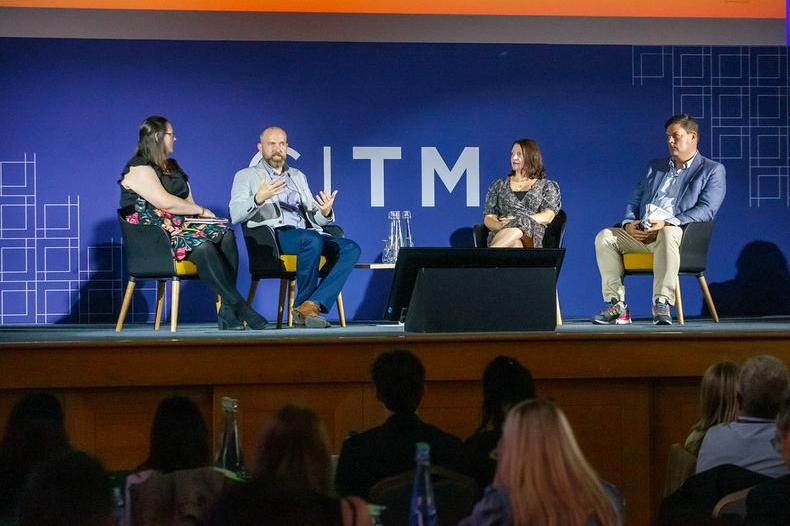Own your career development
Knowing which path to take in your career can be difficult and sometimes overwhelming. We’ve gathered the best tips and advice from three highly experienced CITMA Paralegals.

Speaking at our second Paralegal Conference, Ian Collier (Stobbs IP), Nick March (Taylor Wessing), and Gail Nicol (Lincoln IP) each delved into their own career journeys, focusing on the various routes you can take as a Paralegal and how the profession is evolving.
Are formal qualifications the only way?
Talking us through her career map, Gail referenced qualifying as a Paralegal as a career highlight for her, saying, “I had effectively been doing the work for a good number of years but having that official recognition gave me a real boost.”

Having come to the decision to complete the qualification later in life, Gail spoke candidly about her worries. She described the moment when she first got accepted for the Queen Mary course as “a bit of a turning point,” adding, “I’d been doing it for so long, it was my bread and butter, but it gave me a real step up.”
However, Gail was quick to reassure delegates that qualifications are not the only route to achieving your goals in the IP industry. While formal training may support your personal growth, instilling confidence in your ability, Gail explained how attitudes have changed over the years.
When asked how one can become an attorney without a law degree, Gail said, “Firstly, don’t panic, I don’t have a law degree. We’re fortunate that a lot of the education establishments recognise experience; having done the job and having the knowledge.”
Nick added, “The pathway to becoming a qualified Trade Mark Attorney has changed massively over the last 20 years. When I first started, the pathway didn’t even exist as far as I could see – it was Trade Mark Attorneys, Formalities, and there was no link between the two. So it’s really encouraging to see it now, it’s very positive.”
The benefits of making key contacts
Ian took us through three main stops on his career map, explaining how he felt fortunate to have been able to grow and step into new roles, as business needs grew.

In particular, he credited mentoring and buddying with others in the industry as key factors in his success, saying, “At maybe three of those junctions, there’s been three very different business leaders who supported me. They were all quite different because their business needs at that time were developing at different levels, but so was my skillset.”
While mentoring can be incredibly beneficial, Ian was keen to highlight that the real value comes from good communication, “It’s important to share your goals with the people who are mentoring you. Don’t just see it as a one-way conversation with someone you may see as successful. Keep talking about your goals and hopefully they’ll reflect that back to you.”
He added, “Think about the approach that works for you but also what you may deliver to other people. Make sure there’s mutual communication and that you really understand one another, and ask for what you need.”
Nick also spoke fondly about some of the key connections in his career. Having heard from a previous colleague about a potential new role at another firm, this helped redirect his path after being made redundant in 2006.
He said, “It’s the beauty of networking, you never know when those contacts may or may not be useful. So that setback led to a change of events, which had me join another law firm. It was a really good role, and I had to build up a formalities team so it was really exciting.”
The future of IP roles as AI advances
One topic which crept up throughout the day was the use of Artificial Intelligence (AI) in legal practices. The speakers shared their views on what this might mean for the future of trade mark professionals and ways of working.
Ian commented on how the use of AI has altered productivity levels, “It’s changed massively – I can now have a colleague check a 1,000 US trade marks for accuracy in less than an hour. I think we’re a long way from being replaced, however we do need to look at how job roles have changed.”

Nick agreed with this idea, “I’ve not seen anything that’s going to make trade mark formalities staff redundant, but I think if anything, it’s going to be a shift in the role.”
To enable IP professionals to grow alongside the advancements in technology and AI, Nick told us it’s crucial to keep abreast of current technical developments.
He said, “This is easily done by signing up to forums, vendors, appropriate mailing lists, as well as talking to your peers, talking to your new network connections from today, and just generally keeping yourself well-informed.”

